CWTS course program
CWTS is proud to introduce its newly developed course program. The course program consists of three courses targeted at professional users of scientometrics, including librarians, policy officers, and research managers at universities, funding agencies, and other research organizations. For PhD students CWTS offers the annual CWTS Scientometrics Summer School.

Bibliometric Data Sources and Indicators
This course provides an introduction to bibliometric data sources and indicators. The course covers the fundamentals that professional users of bibliometrics need to be familiar with. The course Bibliometric Data Sources and Indicators has different editions, offered on-site in Leiden, the Netherlands and offered online.
or read more for the online course.

Visualizing Science Using VOSviewer
This course provides an in-depth introduction to scientometric visualization, focusing on the popular VOSviewer software tool developed at CWTS. The course is taught by Nees Jan van Eck and Ludo Waltman, the developers of the VOSviewer software. It emphasizes practical hands-on training with the software. The course Visualizing Science Using VOSviewer is offered online.

Scientometrics Using Open Data
Scientometric analyses are increasingly performed using open data, making these analyses more transparent, inclusive, and reproducible. The course Scientometrics Using Open Data provides an in-depth introduction to such open data, covering data sources such as Crossref, ORCID, OpenAlex, and others. CWTS organizes the course jointly with the Curtin Open Knowledge Initiative (COKI). It is offered online.

CWTS Scientometrics Summer School
CWTS annually organizes the CWTS Scientometrics Summer School, providing doctoral-level training in the field of scientometrics. The summer school is focused on PhD students and other (junior) researchers. Participation in the summer school is not possible for professional users of scientometrics. We invite professional users to participate in the courses listed above.

